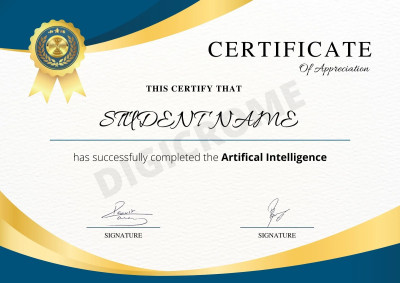Program Overview
Embark on a journey of technical mastery and professional advancement with the AWS Certified Solutions Architect - Professional exam. Designed to elevate your expertise in designing distributed applications and systems on the AWS platform, this certification is a testament to your ability to architect highly available, fault-tolerant, and scalable solutions. Here, we outline key insights and preparation essentials to guide you towards success in this prestigious certification.
Understanding the Exam:
The AWS Certified Solutions Architect - Professional exam is tailored for individuals aspiring to perform the role of a Solutions Architect. It evaluates candidates on their ability to recognize and gather requirements, develop systems using new services, and evaluate architectural decisions. Key areas covered include:
Architecting High Availability and Business Continuity: Assessing stakeholder requirements, implementing disaster recovery strategies, and determining the use of multi-availability Zones vs. multi-region architectures.
Cost Optimization: Making architectural decisions to minimize infrastructure costs, comparing cost implications of different architectures, and optimizing AWS account and billing set-up options.
Deployment Management: Managing the lifecycle of applications on AWS, selecting appropriate deployment mechanisms, and positioning environments for development, testing, and staging.
Network Design: Designing and implementing networking features, and applying connectivity features of AWS.
Data Storage: Making architectural trade-off decisions involving storage options, selecting the most appropriate data storage architecture, and determining replication methodologies.
Security: Designing information security management systems, implementing security controls, and protecting data at rest and in transit.
Scalability & Elasticity: Designing loosely coupled systems, implementing front-end, middle-tier, and data storage scaling architectures, and evaluating trade-offs between vertical and horizontal scaling.
Cloud Migration & Hybrid Architecture: Planning and executing application migrations, and designing hybrid cloud architectures.
Exam Eligibility:
- To be eligible for the exam, candidates must have:
- Achieved AWS Certified Solutions Architect - Associate certification.
- At least 2 years of experience in designing and deploying cloud architecture on AWS.
- Ability to evaluate cloud application requirements and provide architectural recommendations.
- Proficiency in providing best practices guidance on architectural design across multiple applications or projects.
Examination Details:
Prerequisite: AWS Certified Solutions Architect – Associate
Format: Multiple-choice and multiple-answer questions
Duration: 170 minutes
Languages: English and Japanese
Practice Exam Fee: USD 40
Exam Registration Fee: USD 300
Preparation Essentials:
Prepare for success with the following resources:
Architecting on AWS: Deep dive into advanced concepts of architecting on AWS.
AWS Cloud Computing White Papers: Explore topics such as security processes, storage options, fault-tolerant applications, compliance, and more.
AWS Architecture Center: Utilize the wealth of resources available for architecting AWS cloud solutions.
Advanced Architecting on AWS: Consider enrolling in advanced training courses to enhance your knowledge and skills.
Mastering AWS as an AWS Certified Solutions Architect - Professional opens doors to limitless opportunities in cloud architecture and design. Start your journey today and redefine your career with AWS expertise.
AWS Certified Solutions Architect - Professional
- ₹70000.00
Features
- 30 Hours
- Live Online
- Student Handouts
- Industrial Projects
Key Highlights
 30 Hours
30 Hours Live Online
Live Online Student Handouts
Student Handouts
 Industrial Projects
Industrial Projects
 Expert Experienced Trainers
Expert Experienced Trainers
 1:1 Doubt Session
1:1 Doubt Session
 Learning Management System
Learning Management System
 24*7 Career Support
24*7 Career Support
Program Objective
- High Availability and Business Continuity
- Demonstrate ability to architect the appropriate level of availability based on stakeholder required
- Demonstrate ability to implement DR for systems based on RPO and RTO
- Determine appropriate use of multi-Availability Zones vs. multi-Region architectures
- Demonstrate ability to implement self-healing capabilities Content may include the following:
- High Availability vs. Fault Tolerance
- Costing
- Demonstrate ability to make architectural decisions that minimize and optimize infrastructure cost
- Apply the appropriate AWS account and billing set-up options based on scenario
- Ability to compare and contrast the cost implications of different architectures
- Deployment Management
- Ability to manage the lifecycle of an application on AWS
- Demonstrate ability to implement the right architecture for development, testing, and staging enviro
- Position and select the most appropriate AWS deployment mechanism based on the scenario
- Network Design for a complex large-scale deployment
- Demonstrate ability to design and implement networking features of AWS
- Demonstrate ability to design and implement connectivity features of AWS
- Data Storage for a complex large-scale deployment
- Demonstrate ability to make architectural trade-off decisions involving storage options
- Demonstrate ability to make architectural trade-off decisions involving database options
- Demonstrate ability to implement the most appropriate data storage architecture
- Determine the use of synchronous versus asynchronous replication
- Security
- Design information security management systems and compliance controls
- Design security controls with the AWS shared responsibility model and global infrastructure
- Design identity and access management controls
- Design protection of Data at Rest controls
- Design protection of Data in Flight and Network Perimeter controls
- Scalability and Elasticity
- Demonstrate the ability to design a loosely coupled system
- Demonstrate ability to implement the most appropriate front-end scaling architecture
- Demonstrate ability to implement the most appropriate middle-tier scaling architecture
- Demonstrate ability to implement the most appropriate data storage scaling architecture
- Determine trade-offs between vertical and horizontal scaling
- Cloud Migration and Hybrid Architecture
- Plan and execute for application migrations
- Demonstrate ability to design hybrid cloud architectures
Our Certificates
Certified by


















